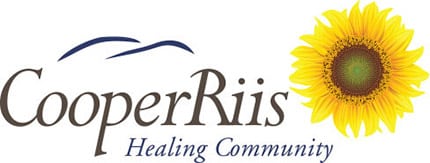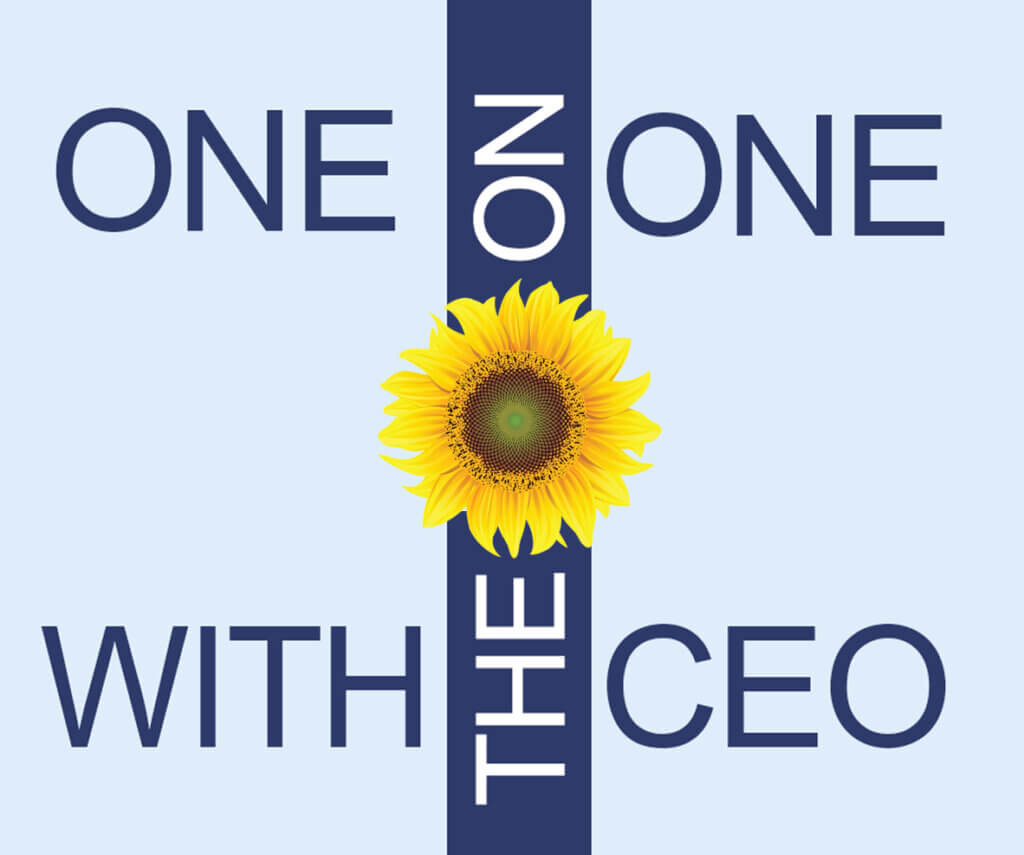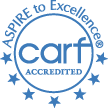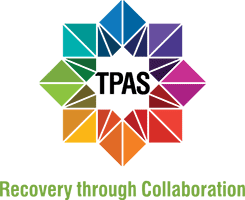
In honor of World Mental Health Day in early October we hosted an important conversation with our Chief Clinical Officer, Johnnie Featherston, MA, LCMHC. The focus was on mental health as a basic human right. We hope you enjoy the series, “ONE on ONE with the CEO.” Be sure to subscribe to our YouTube channel so you don’t miss any of them.
“I’ve come a long way actually. I just got my 16 years clean and sober 2 days ago. I did a 90 and 90, and that would not have been possible- 90 and 90 is 90 meetings in 90 days- and that would not have been possible without CooperRiis driving me to the meetings, so even though my story is a combination of mental health, as well as substances recovery, my book is about the days leading up to when I finally got clean in 2007”
Ryan Gray
Author/Alumni
Read the entire transcript below:
[ERIC] Hi, everybody, thanks for joining us today. I’m honored to have Ryan Gray as my guest. Ryan is a former CooperRiis resident who is very open about his journey of recovery, and he’s doing well in the world and we were talking- he’s written a book, which you can talk a little bit about, but also tell us about your journey, as much as you’re comfortable talking about what’s worked for you in the past, and a little bit about your past… whatever you’re comfortable talking about. So, tell us about yourself, Ryan.
[RYAN] Well, I’ve come a long way actually. I just got my 16 years clean and sober 2 days ago. I did a 90 and 90, and that would not have been possible- 90 and 90 is 90 meetings in 90 days- and that would not have been possible without CooperRiis driving me to the meetings, so even though my story is a combination of mental health, as well as substances recovery, my book is about the days leading up to when I finally got clean in 2007- it was like those events leading up to that. And when I first came to CooperRiis during that time period, the first time I came in, you guys actually weren’t even sure that you could take me because I was so far along in my addiction. I ended up circling back a few months later. I had to get 28 days of rehab and two and a half months dual diagnosis…
Dual Diagnosis Explained
[ERIC] For folks that don’t know, when you say “dual diagnosis”, what does that mean, and how does that show itself?
[RYAN] Dual diagnosis simply means the person has both mental health issues and also substance abuse or alcoholism. Those are it. They’re very interrelated and you know, one affects the other. A close family member of mine was medicating their depression with alcohol, and I talked to him about it and I was like, ‘you know, I think you’re drinking too much…’ and he kind of admitted, ‘Yeah, my depression is really bad and I’m using alcohol to feel better.’
[ERIC] So did you find that in order to engage in a recovery program, you needed to manage the substance part 1st? And once that was under control, you could take on the mental health challenges, or vice versa? How did it work for you in terms of process?
[RYAN] That’s a good question. They are both very important. If I don’t have my medication and I don’t have some kind of treatment, you know, I don’t have a doctor, some kind of outpatient treatment, I know that I’ll end up in a hospital. The medications that I take are pretty strong, pretty potent medications. So, I know that I need that to be able to be stable and to be able to be supporting myself.
At the same time, you know, if I relapse and drink or use, I know that my past behavior is to deteriorate very quickly. So, it’s hard to say- I think that they’re both incredibly important. I don’t know if I can say that one is more important than the other…
[ERIC] …ok, but finding a program that could support both was important in your steps to recovery, so…
[RYAN] Yeah…
[ERIC] What other efforts did you make along the way to help you get to where you are today?
[RYAN] I like to think of it as taking baby steps for me. And this is just me, but all the changes that I’ve made in the last 16 years have been very gradual changes. After CooperRiis, I was in a group home in Asheville for about four and a half years. And in that time, I actually went back to school. I ended up finishing school, getting my bachelor’s, got a car… I ended up moving out and got my own place, I started working again… of course, the book, but, all of the changes that I made were baby steps, like I said, a gradual change, but I made a lot of changes over a pretty significant amount of time and having a toolbox of things that we do to stay well, you know… one of those things for me is going to AA meetings. Everybody has their own their own skill set and toolbox of things that keep them well.
“I have schizophrenia, and I was in college… smoking a lot of marijuana and had a psychotic break. And I think that the psychotic break was when we figured out, ‘okay, Ryan’s having problems’. I was at a care facility at this time and I was leaving the property to get the substance and I was getting caught. They were getting better and better at catching me do it and the more I did it every single day, the more concerned people were… and it was the fact that I couldn’t stop.”
Ryan Gray
Author/Alumni
[ERIC] Can I ask you a way back one question? Kind of framing it from the standpoint of someone who’s in recovery, doing well in the world, had a rough road, right? If you were to talk to parents of young people who are just beginning to have issues, what would you… what advice would you give them?
[RYAN] I think that, with substances and alcohol, it doesn’t work for you unless you want it, unless it’s something that you want. If it’s not something that you want, I would say it’s probably a waste of time. The first time I came to CooperRiis just to scope it out, they said I was probably too far along. You know, at that point I was just doing things that other people- specifically my parents- wanted me to do. They wanted me to go to CooperRiis. They wanted me to get help. Most people, before they get help, have to hit bottom first.
Being addicts and being alcoholics, it’s an illness. So, just to be understood, you can’t make somebody get help. They have to want that help.
[ERIC] Sure, and that’s tough with kids because with young people, as adults and parents and loved ones, you know, it boils down to ‘the parents are in charge and they’ve got to make decisions’, and that sometimes can be really challenging. And you’re right, you know, I’ve certainly seen here, that the folks that that do well are the ones that are here because they want to be here. Maybe not because everybody loves to go to treatment, but they have a stake in hope and believing that they can get better. When you look back- I want to stick with the past for a second- what do you remember about what was going on with you as a younger person that kind of tipped you off that something was not working out for you? What kinds of feelings or emotions or behaviors were you noticing in yourself, or other people were noticing in you, that was a trigger that ‘we’ve got to help Ryan get some help’?
[RYAN] Um, I think for me, that that notion didn’t come till much later…I’d say 2007. One can cause the other. I have schizophrenia, and I was in college, and I was smoking a lot of marijuana and had a psychotic break. And I think that the psychotic break was when we figured out, ‘okay, Ryan’s having problems’. I was at a care facility at this time and I was leaving the property to get the substance and I was getting caught. They were getting better and better at catching me do it and the more that I did it every single day, the more concerned people were… and it was the fact that I couldn’t stop.
[ERIC] Alright, so fast forward, here you are now, you’re a grown up man, living on your own, supporting yourself, doing all the things… what are those things? What are you doing to take care of yourself?
[RYAN] Like I said, AA meetings, I have a therapist, a doctor, take medication, a support network. I talk to my parents every week and actually, I’ve been home for a while, having some anxiety related issues, and I’ve been home longer than I had planned, but they’ve been part of the journey, trying to help me…I’ve came a long way. You know, so, like I said, 16 years…so just some of the things that I’ve been able to do in that time. I guess that’s my story, ‘to come back’.
About The Book
[ERIC] We’ll, we’ll close with this: When you think about the future, what do you dream about doing?
[RYAN] I think right now, my focus is on getting my book out there, which is called “A Twilight In York: Volume 1”. Um, you know, it’s on Amazon, that’s what I went back to school for…I went back to school to study literature and creative writing. That’s probably my biggest goal right now is to work on that because there’s the writing side of it and then there’s the marketing side of it, and the marketing side of it can be a lot to deal with. And probably some kind of… maybe {ed. Doing} something in health care.
[ERIC] And I think from our conversations before this, you know, what sounds to me is important to you is the ability to take what you’ve learned and help others.
[RYAN] Exactly. Yeah.
[ERIC] Yeah, that’s awesome.
[RYAN] Yeah, that’s all in the book. It’s leading up to it. It’s kind of meant to be a bit of a novel. It’s something that you would want to pick up and read, carrying that message that, you know, ‘look where I started from, how much is possible’, because, you know, you come into places like CooperRiis or rehab or inpatient and you’re coming in off the streets. It took a long time. I was in a group home for 5 years, but I would say, ‘…well, go back to school, get a car, get my own place and start working again’. I’m sort of in between jobs right now, but I was working 40 hours a week at a rehab and then I was working 40 hours a week at a dual diagnosis facility as a Peer Support Specialist. So, that’s part of peer support- being a Peer Support Specialist. For those of you that don’t know what that is- a Peer Support Specialist- they require you to be the one… you have to have suffered either mental health or substances or both, and you’re drawing on your own experience to try to help other people.
[ERIC] Well, thank you for taking the time to talk with me. Your story is a great one filled with hope, filled with helping, filled with perseverance, and we appreciate you taking the time to reach back out to CooperRiis.
View The Video On Our YouTube Channel Here










